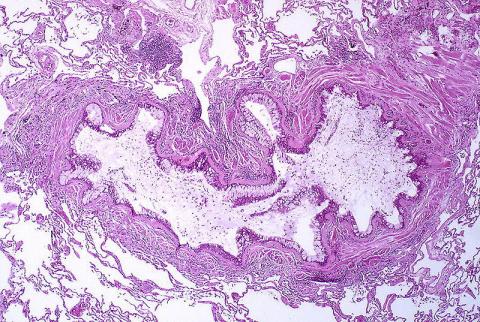Katir Patel
 Overview:
Overview:
Asthma is the most common chronic respiratory disease affecting young children all over the world. Current research has confirmed that infectious agents play an important role in asthma initiation and exacerbation. Recent work from our lab has revealed that respiratory infections caused by Chlamydia has been identified as a risk factor in asthma development and live Chlamydia has been isolated from the lungs of children and adults with asthma. However, we do not currently understand how this pathogen causes asthma symptoms and if it really initiates the disease.
Research Objectives:
1.Examine the prevalence of Chlamydia in the lungs of pediatric patients suffering from severe respiratory disease and characterize the manifestation of disease through cytokine production, cellular immune responses, and identification of novel potential biomarkers which can be used for diagnosis of infectious asthma (pathogen-specific IgE).
2.Determine if chlamydial lung infection in neonates leads to the development of airway hyperactivity (the hallmark of asthma) by altering the immune response using a mouse model. We specifically set out to characterize the immunological response to early life chlamydial respiratory tract infection and determine if there is a change of immune response from the typical TH1 cell type (which can clear Chlamydia) to a TH2 cellular response, which does not clear Chlamydia and is also the basis of asthma.

 Basement membrane thickening and severe inflammation of bronchiole.
Basement membrane thickening and severe inflammation of bronchiole.


